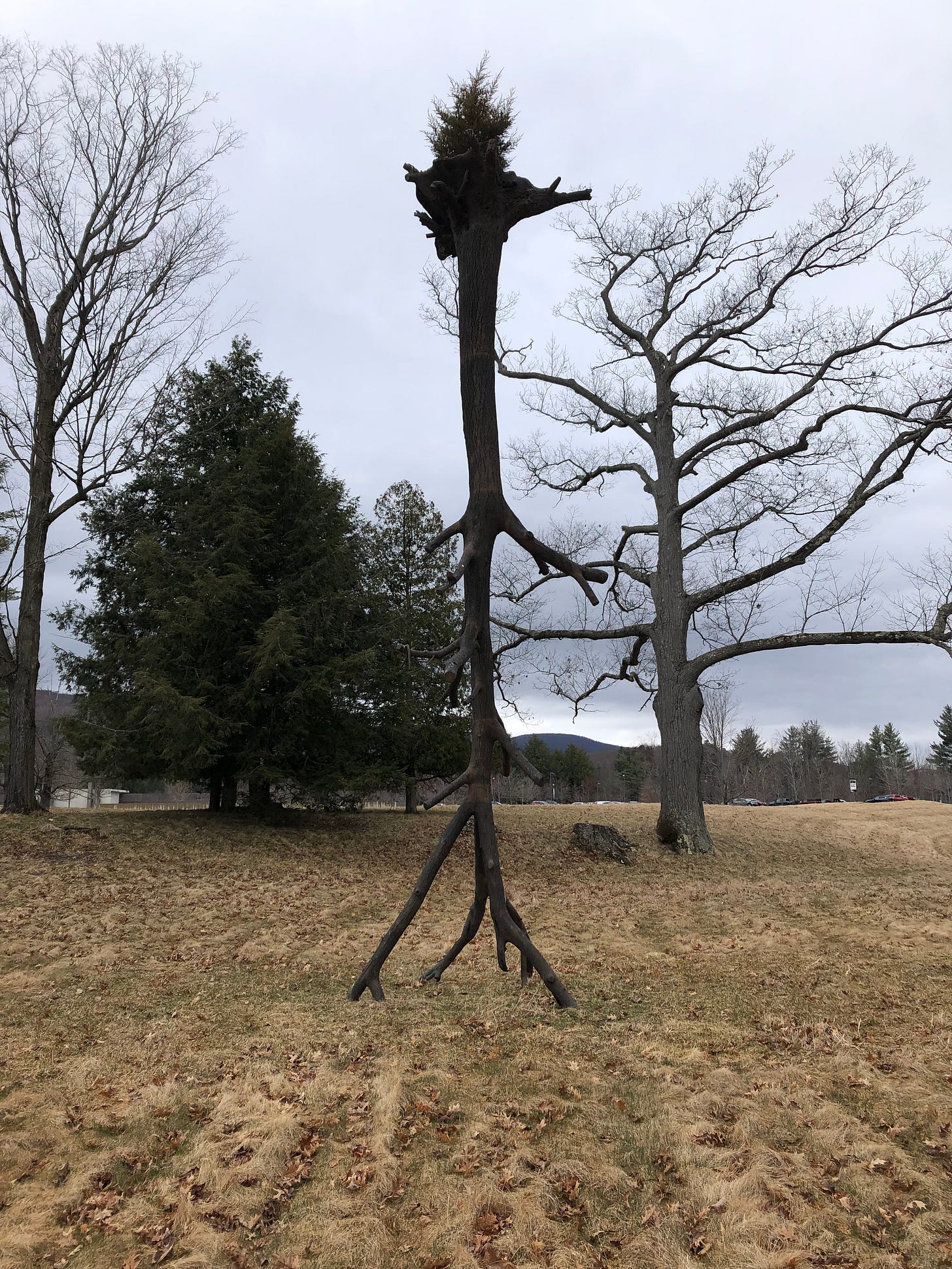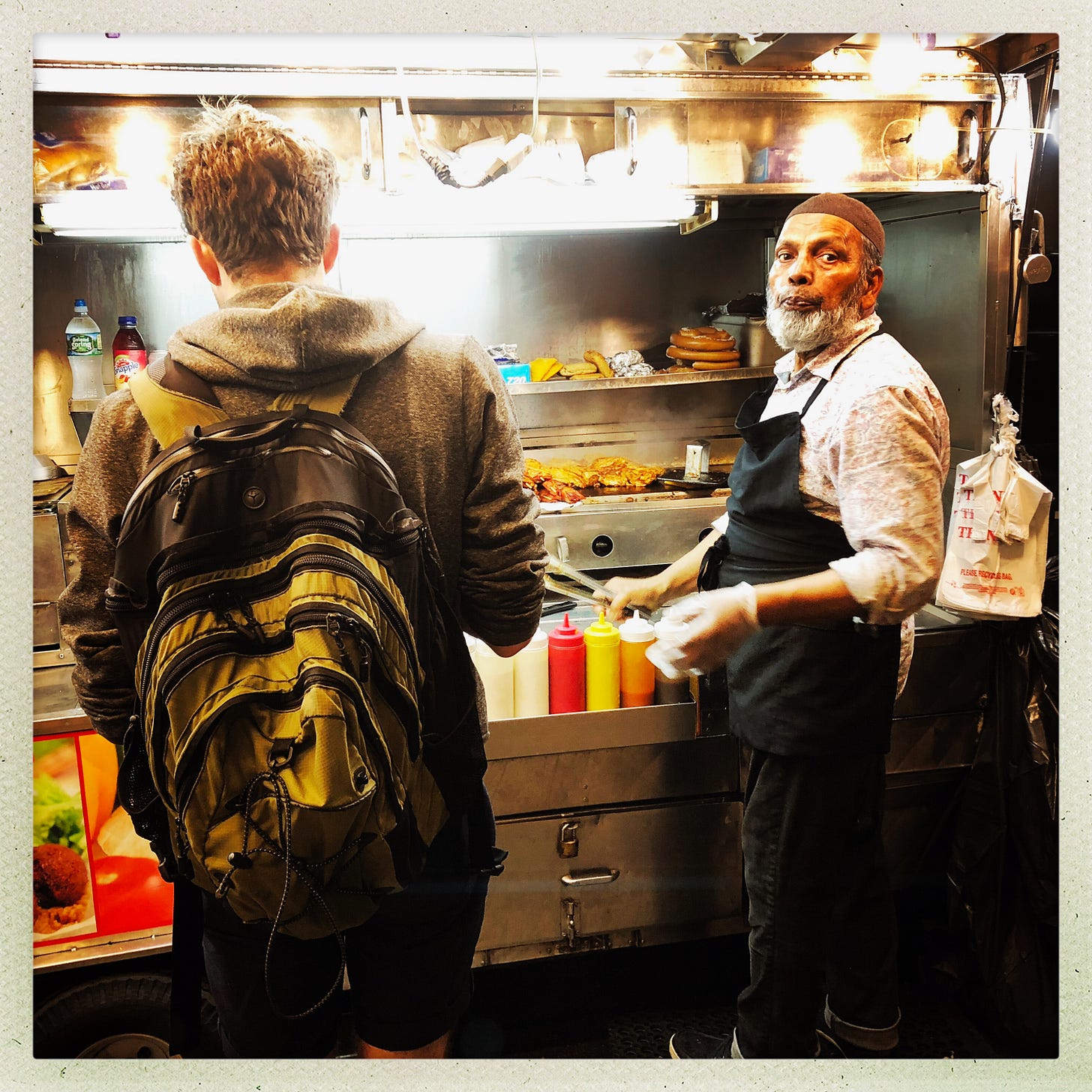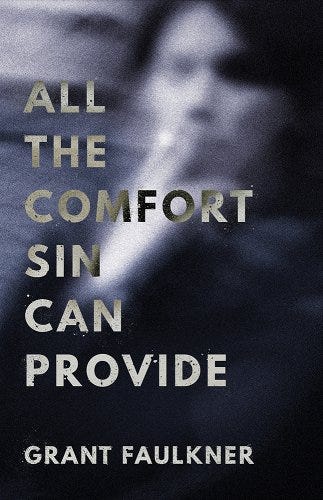Differently Think
If you look closely, there's another story in the story.
Dear Readers,
I had three experiences this week that reminded me that “Think different” is more than an Apple tagline.
One: While listening to an interview with the author Michael Lewis (known for books and movies like Moneyball and The Big Short), he said that when he covered the 1996 presidential campaign, all of the other reporters would clear out of the room after the debate was over, and they’d hear briefings (spin) from each candidate’s spokespeople, and then they would then write variations of the same article.
After one debate, he decided to stay in the room after everyone left. He walked up to the podiums and sifted through the trash cans and collected the stray pieces of paper the candidates had taken notes on, and he said those notes and doodles helped him uncover a story of the debate that the other reporters were unable to see.
An anthropologist once told me the best way to learn about a civilization is by sifting through its trash. Lewis did just that to uncover another story, an unseen story, instead of following the conventional process others did.
Two: John Cage would sit in his apartment in New York City and listen to the honking horns of a traffic jam outside his window and imagine it as a great symphony.
Every sound (and every silence) was an artistic tool to work with. Where others found annoyance, he found beauty.
Three: I saw this tree recently.
Challenge: What can you flip on its head? What can you do differently? Just for the sake of altering your perspective and changing the story.
Go. Or stop.
Because a quote
“The purpose of art is to lay bare the questions that have been hidden by the answers.”
~ James Baldwin
Because another quote (to pair with the previous one)
“Be afraid of the day you can look on a locomotive without a sense of wonder.”
~ Appolinaire
Because no one wants you to differently think
Every time I pitch a book, the agent or editor I’m pitching wants to fit it into a different box. A conventional box. A box that fits on a table in a store and looks like the other boxes around it.
I always ask, “But don’t people want something different? Wouldn’t a box shaped like a circle or an ‘L’ get their attention? Or maybe they don’t even want a box. Maybe they want a pouch or silk wrap or an accordion folder that looks like an accordion (maybe even an accordian painted by Salvador Dali).”
No one ever answers this question. I’m just told that store owners like boxes because people like to buy boxes, and there’s a lot of evidence people like to buy boxes. Because they buy boxes. In stores full of boxes. They don’t buy anything else.
This week’s word: vague
Italo Calvino claimed that language becomes more poetic as it becomes vaguer and more imprecise. In fact, Calvino noted that in Italian, “the word for ‘vague’ (vago) also means charming, attractive; having originally meant ‘wandering,’ it still carries with it a feeling of movement and mutability, which in Italian suggests not only uncertainty and indeterminacy but also grace and pleasure.”
As a writer, it’s good to know when to be vague, because vagueness is a tool of evocation. And sometimes it’s better to evoke than it is to articulate.
The powers of uncertainty are so great I wonder why we so often claim to be certain.
Because prompts take us to new places
Use this photo as a prompt, as a random catalyst, as an igniter for any writing project you're working on.
Or … write a story about this photo in less than 300 words and share it.
Because a haiku
The dew on a blade of grass is all you need to ponder
All the Comfort Sin Can Provide
If you like this newsletter, please consider checking out my recently released collection of short stories, All the Comfort Sin Can Provide.
Lidia Yuknavitch said:
“Somewhere between sinister and gleeful the characters in Grant Faulkner’s story collection All the Comfort Sin Can Provide blow open pleasure—guilty pleasure, unapologetic pleasure, accidental pleasure, repressed pleasure.”
I am the executive director of National Novel Writing Month and the co-founder of 100 Word Story. I am the author of Pep Talks for Writers: 52 Insights and Actions to Boost Your Creative Mojo and the co-host of the podcast Write-minded. My essays on creative writing have appeared in The New York Times, Poets & Writers, Lit Hub, Writer’s Digest, and The Writer.
For more, go to grantfaulkner.com, or follow me on Twitter at @grantfaulkner.





“The powers of uncertainty are so great I wonder why we so often claim to be certain”… Best line of the newsletter! Literality and confidence and absoluteness are way overrated.
Thank you Grant-many thoughts provoked including when people buy handmade jewelry, the slightly flawed seems to be more interesting and first purchased items… an imperfect stone is actually perfect; differently thinking.